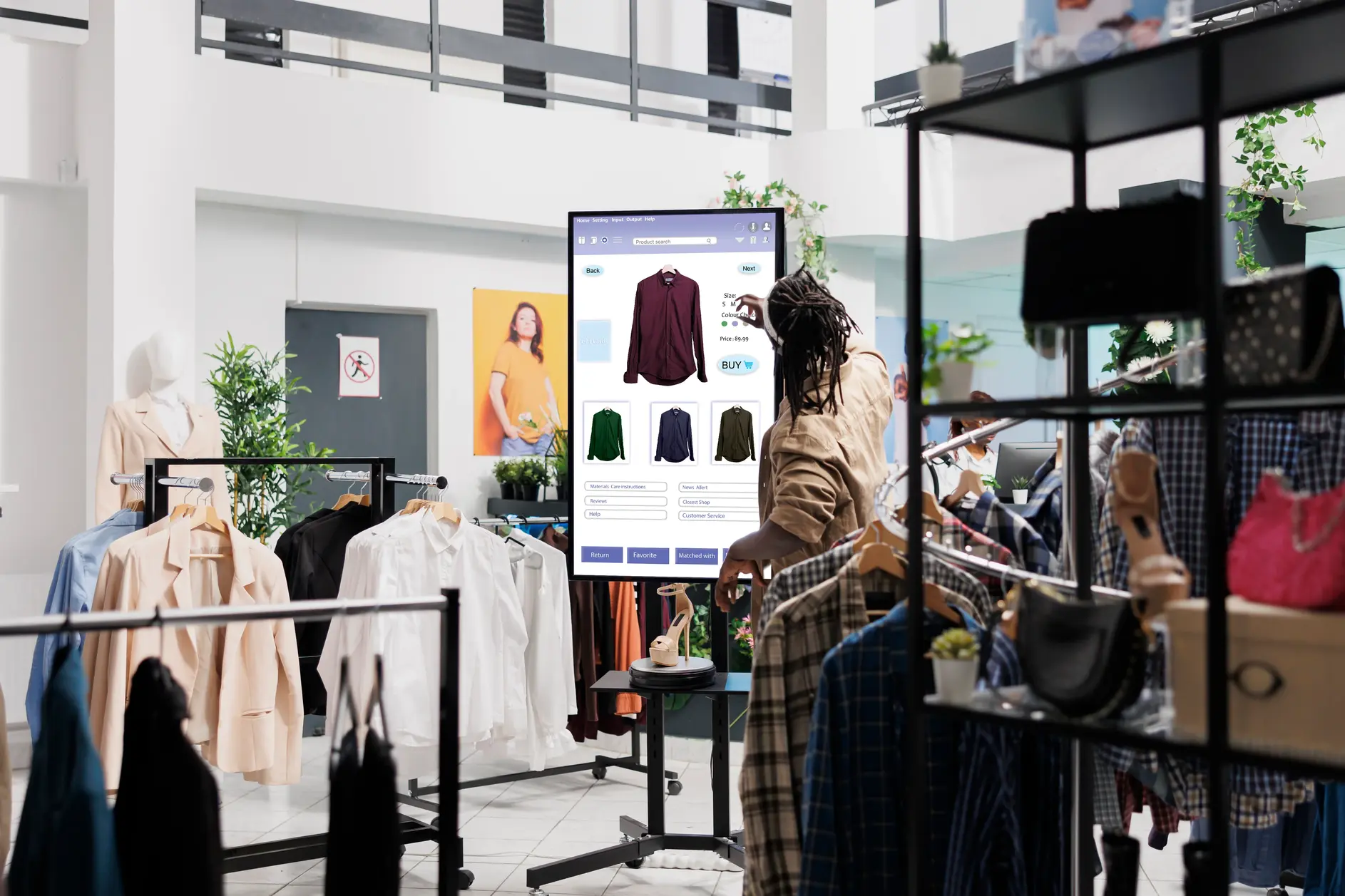


Reach out to us!
Start your AI journey today and let us help you understand your business better. Send us an email or book a meeting with one click!


Reach out to us!
Start your AI journey today and let us help you understand your business better. Send us an email or book a meeting with one click!
19th September 2024


Belle Williams
As the retail landscape continues to evolve, the integration of advanced technologies like artificial intelligence (AI) and computer vision is transforming the traditional shopping experience. In an age where consumer expectations are higher than ever, retailers are turning to these innovations to create more engaging, personalised, and efficient in-store environments. From real-time customer insights to seamless operational management, AI and computer vision are not just enhancing the way stores operate—they are redefining the very nature of retail itself. In this blog, we explore how these cutting-edge technologies are shaping the future of in-store experiences, offering retailers unprecedented opportunities to connect with their customers and optimise every aspect of their business.
Introduction
What does the current retail experience look like?
Digital Transformation in Retail
Predictions of the future of retail
Conclusion
The current retail experience is a blend of traditional practices and modern innovations, but it often falls short of meeting the high expectations of today’s consumers. Many brick-and-mortar stores still rely heavily on manual processes and static displays, which can result in a disjointed and impersonal shopping experience for the modern day customer. While some retailers have embraced digital tools like point-of-sale systems and basic analytics, the majority of in-store interactions remain largely uninformed by real-time data. This gap between consumer expectations and the in-store reality often leads to inefficiencies, such as poorly optimised store layouts, missed opportunities for personalisation, and challenges in managing foot traffic and inventory effectively. In an increasingly competitive market, these limitations highlight the need for a more dynamic and data-driven approach to retail, paving the way for AI and computer vision to revolutionise the shopping experience…
80% of Consumers are more likely to make a purchase when brands offer personalised recommendations powered by AI.
AI seems to be the topic of many conversations in today's world, and retail is no different. The rapid growth of computer technologies is making retailers rethink how they create the in-store experience for their customers. Cameras seem to be by far the best solutions for gathering real-time data, enabling retailers to track customer movements, analyse behaviour, and optimise store layouts. With the help of advanced AI algorithms, these cameras can do much more than simply monitor—they can provide actionable insights, such as identifying high-traffic areas, understanding which products attract the most attention, and even predicting when specific items are likely to be picked up.
Computer vision systems for loss prevention have been reported to reduce retail shrinkage by up to 30%. Retailers using AI-powered surveillance systems have seen a decrease in theft and fraud due to real-time monitoring and alerts.
This data-driven approach allows retailers to move away from guesswork and make informed decisions that enhance both the efficiency of store operations and the overall customer experience. By integrating these technologies, retailers can create a more engaging and personalised shopping environment, where customers benefit from streamlined store layouts, quicker access to the products they are interested in, and tailored promotional content displayed through interactive kiosks and digital signage. These innovations not only improve the efficiency of store operations but also make the shopping experience more intuitive and enjoyable for customers. Digital transformation in retail is not just about adopting new technologies, but about leveraging these tools to create smarter, more responsive environments that cater to the needs of today’s consumers, making every visit to the store more satisfying and tailored to their preferences.
It’s not just customers who can benefit from these technologies - Merlin Cloud’s footfall tracking can analyse store traffic patterns to predict busy periods - helping store managers allocate staff.
As AI and computer vision technologies continue to advance, the future of retail is poised to be more connected, personalised, and efficient than ever before. With Merlin Cloud's innovative data warehouse solutions, retailers can create stores that are not only smarter but also more responsive to the individual needs of their customers. By using our solutions like integrated camera technologies, interactive kiosks, and digital signage, retailers can offer hyper-personalised shopping experiences. These include tailored product recommendations, targeted promotions, and dynamically optimised store layouts based on real-time data.

Merlin Cloud’s computer vision capabilities enable precise footfall tracking and behaviour analysis, allowing for real-time adjustments in everything from inventory management to in-store marketing strategies. As these technologies become more sophisticated, they will also play a crucial role in sustainability efforts, with our systems helping retailers to optimise energy usage and reduce waste by monitoring occupancy and adjusting resources accordingly. The integration of AI with other emerging technologies, such as augmented reality and IoT, further enhances the in-store experience, seamlessly blending the physical and digital shopping environments. Ultimately, the future of retail, powered by Merlin Cloud, will be defined by a seamless blend of cutting-edge technology and human touch, creating an environment where customer needs are anticipated and met with unprecedented precision. As consumers become increasingly familiar with AI's role in their daily lives, retailers must stay ahead of the curve by investing in future technologies today, ensuring they remain competitive and relevant in the ever-evolving retail landscape.
The retail industry is at a pivotal moment, where the convergence of AI and computer vision is set to redefine the in-store experience. As we’ve explored, the current retail landscape is ripe for transformation, with many stores still reliant on outdated methods that fall short of meeting modern consumer expectations. The adoption of AI-driven technologies, such as Merlin Cloud’s advanced camera systems and real-time analytics, offers retailers the tools to bridge this gap, creating more personalised, efficient, and engaging shopping environments. Looking ahead, the potential for these technologies to revolutionise retail is immense. From hyper-personalisation to sustainable operations, the future of retail lies in a seamless integration of cutting-edge technology with a deep understanding of customer needs. For retailers, the time to act is now—by embracing AI and computer vision today, they can not only enhance their current operations but also position themselves at the forefront of the industry’s future.